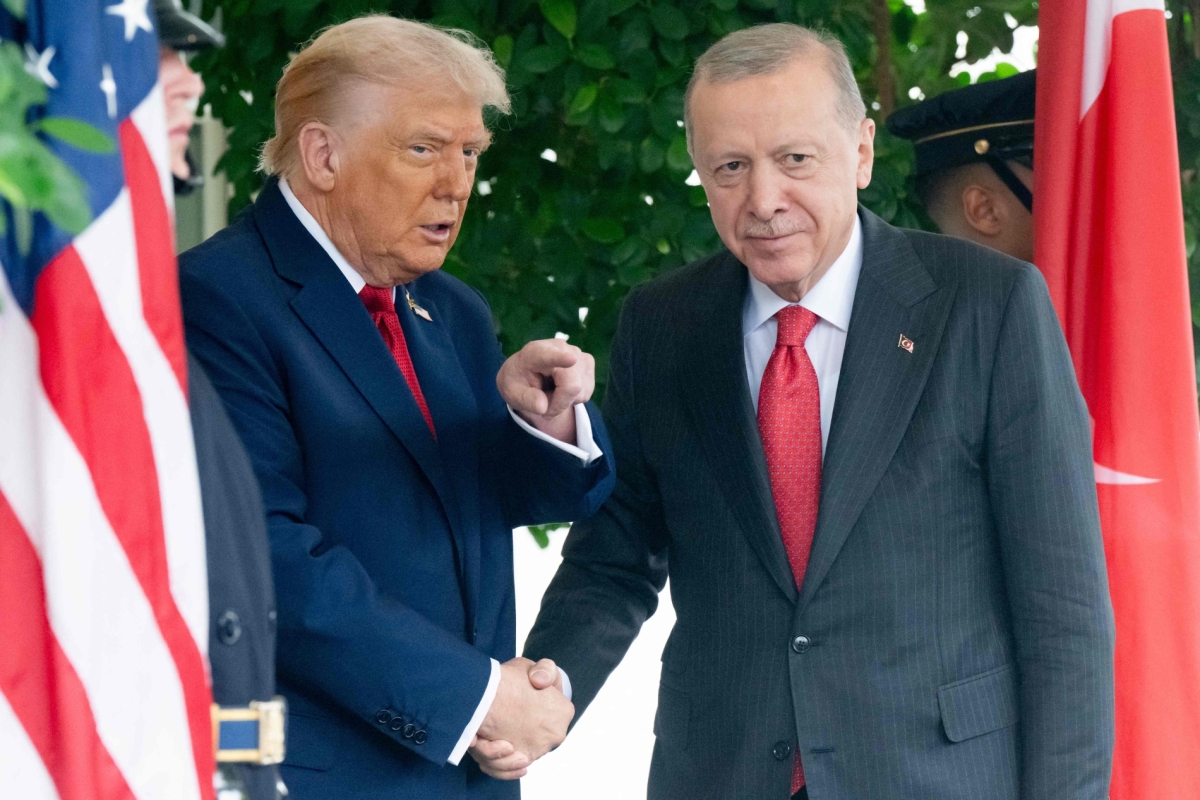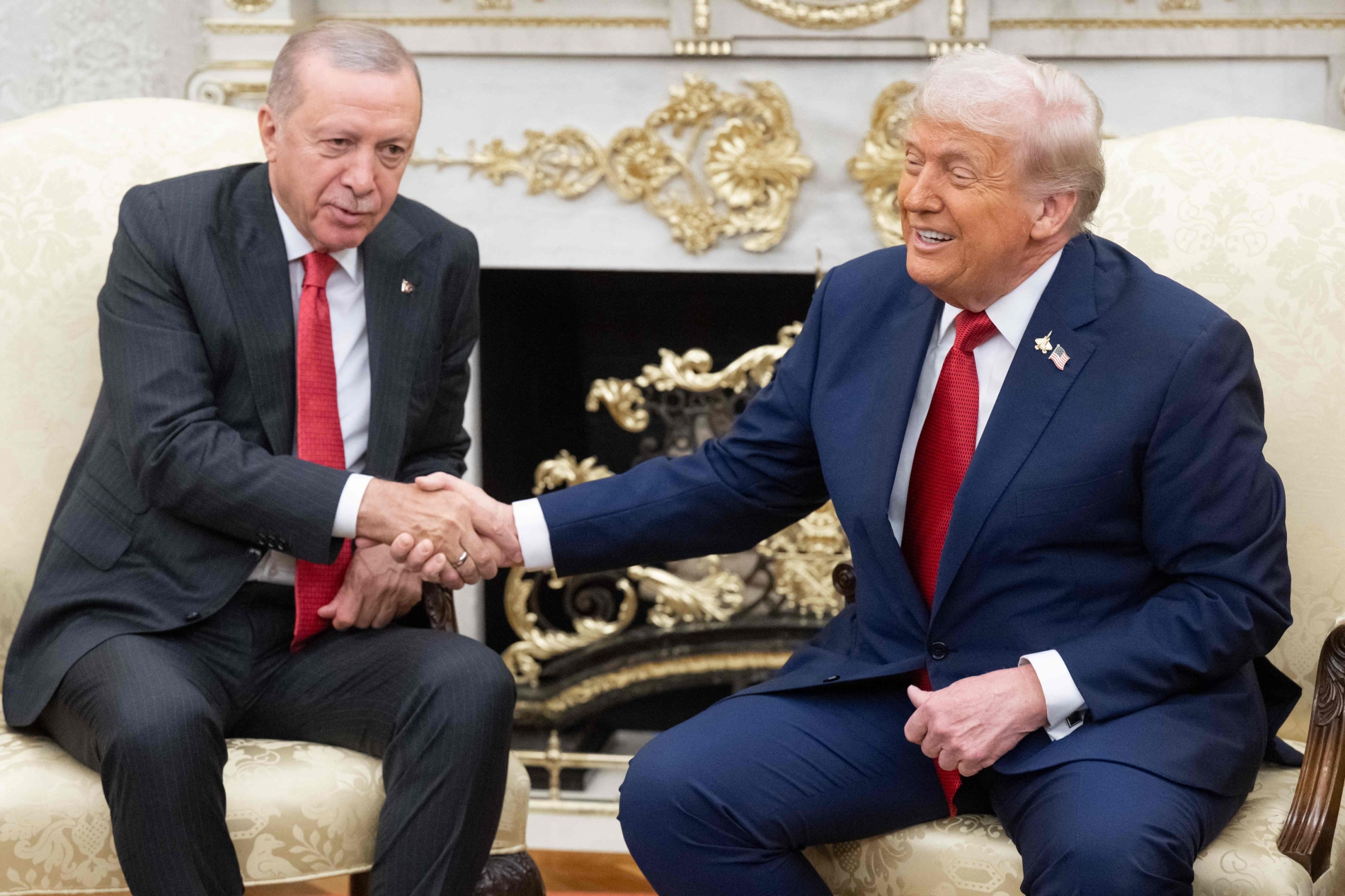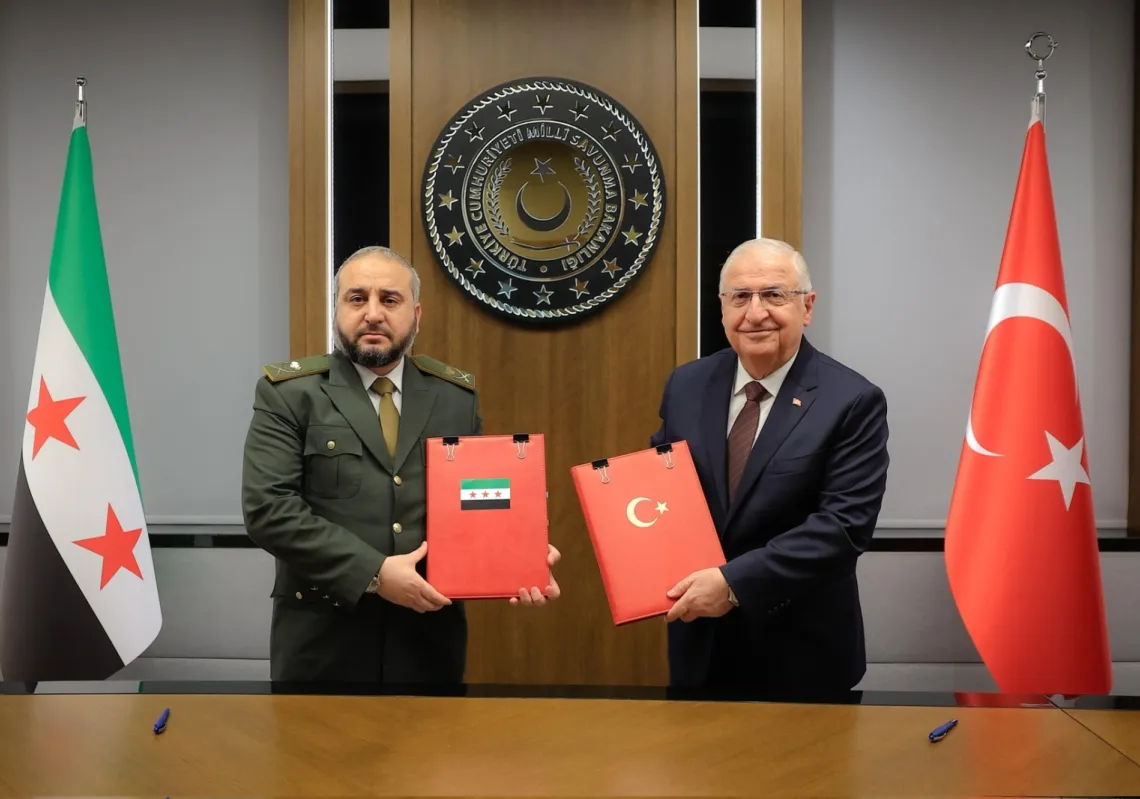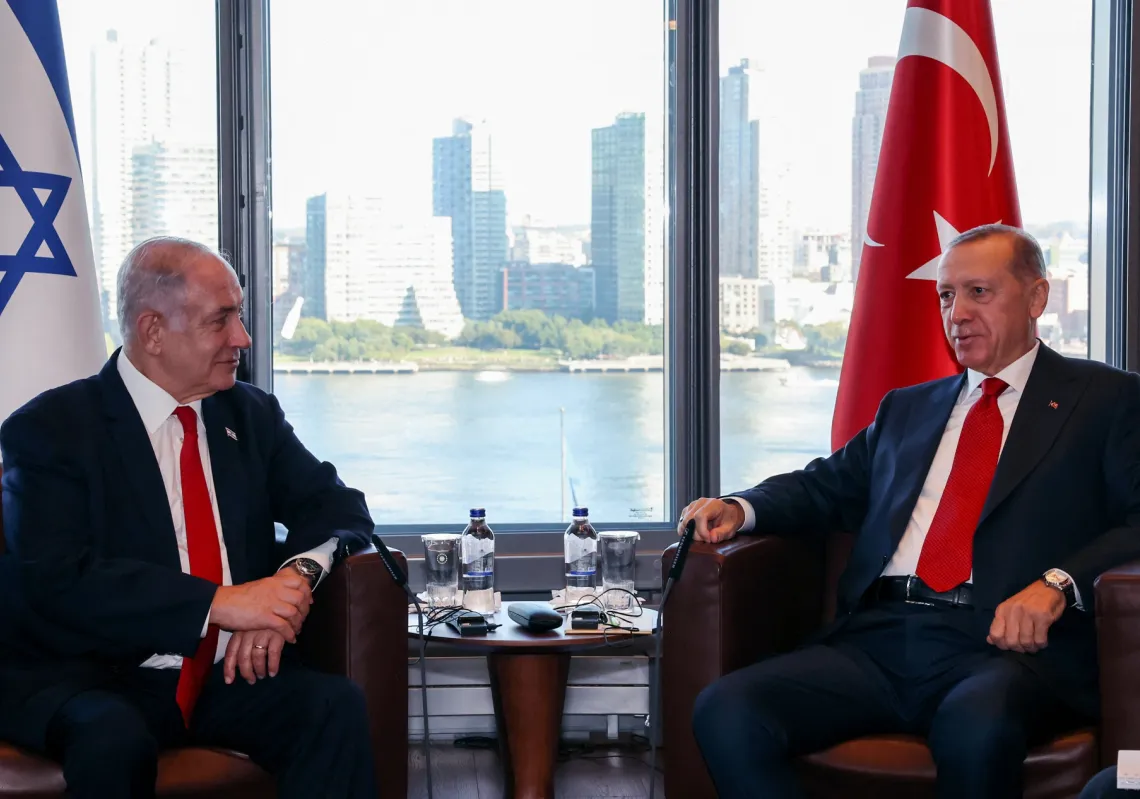President Donald Trump hosted President Recep Tayyip Erdoğan at the White House on 25 September, marking their first face-to-face meeting since 2019 and signalling a pragmatic shift toward a business-oriented relationship.
The two heads of state, accompanied by their cabinet ministers, first appeared in front of the press, made brief statements, and answered questions before proceeding to a working lunch behind closed doors. Afterwards, Trump stated: “We had a great meeting; you will be really impressed when you hear what happened today.” US Ambassador Tom Barrack went a step further, describing the encounter as “epic”.
Trump even referred to Erdoğan as his long-time friend, complimenting him on the respect he enjoys worldwide, and showering him with praise during their meeting with the press. Although held in Washington against a backdrop of geopolitical tension, nothing could derail the signing of several agreements, including a historic deal for Türkiye to procure liquefied natural gas from the US until 2045.
Türkiye will also purchase 225 Boeing passenger planes (to be delivered between 2029 and 2034), and a memorandum of understanding related to strategic civil nuclear cooperation was signed. Significantly, Türkiye’s potential purchase of F-35 and F-16 fighter jets was discussed, with Trump indicating that CAATSA (Countering America’s Adversaries Through Sanctions Act) sanctions could be lifted.
Türkiye was removed from the F-35 programme in 2019, and CAATSA sanctions applied following its purchase of the S-400 air defence system from Russia. The US even refused to deliver the six F-35 aircraft Türkiye had paid for and did not refund the $1.5bn. No details of the discussions were disclosed, and nothing concrete was announced, despite the issue having fuelled tensions between the two countries for years. After the meeting, Trump said an agreement on the F-35s could easily be reached. “But first, President Erdoğan will do something for us,” he added.
There is also the issue of around 40 F-16 fighter jets that Türkiye wants to buy from the US. This purchase has also been stalled, for reasons that are unclear.
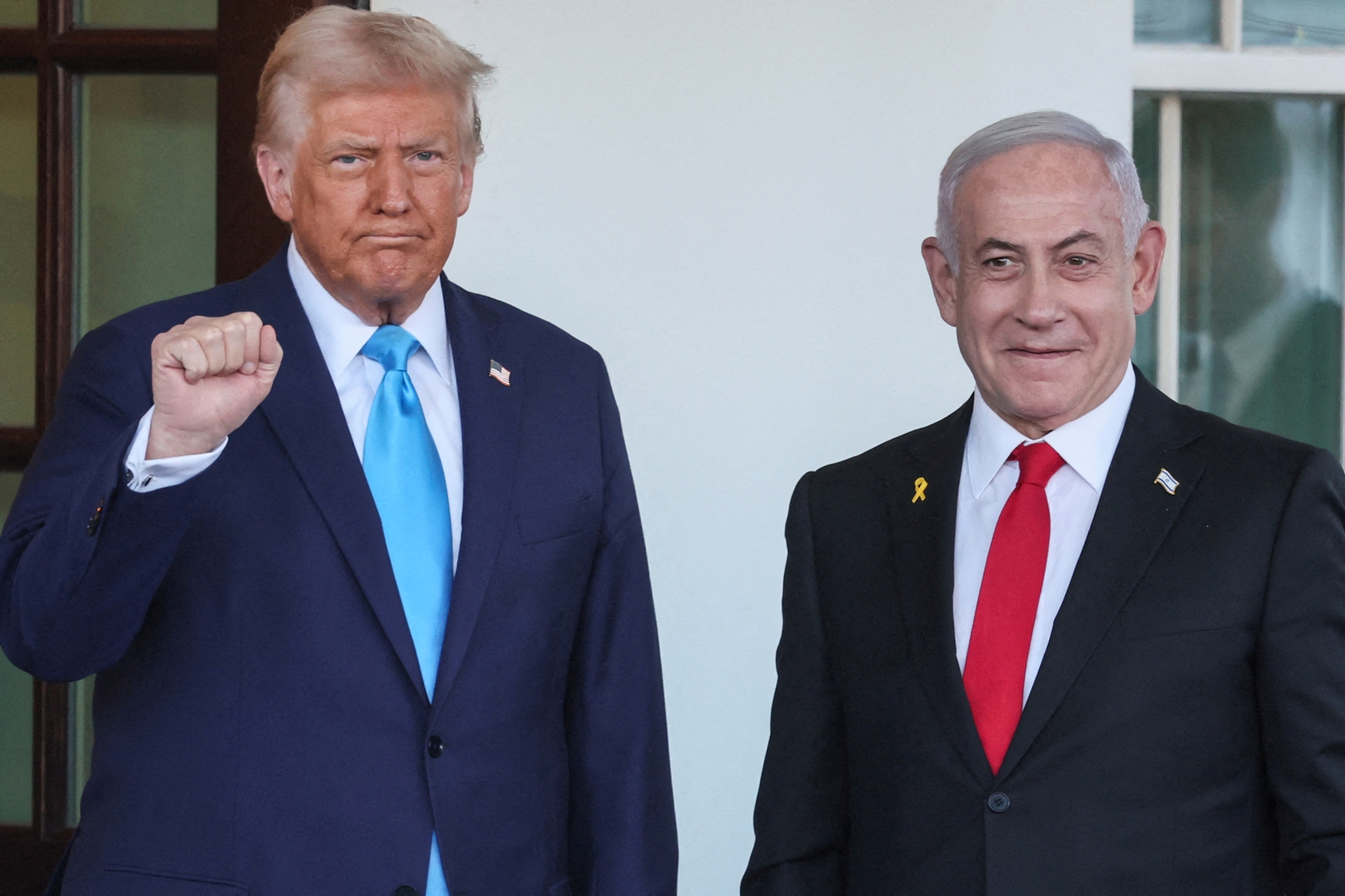
Gaza and Syria
Türkiye has taken a clear stance against Israel’s war in Gaza. The US, on the other hand, has stood unwaveringly beside Israel, even in the face of growing international condemnation. The two leaders could not be more opposed. Trump describes Hamas as the worst terrorist organisation in the world. Erdoğan hails the organisation as a legitimate resistance movement fighting for a just cause.
Gaza had the potential to derail the meeting in Washington. It was clear, however, that diplomats had reached an agreement on how to handle the sensitivity of the conflict, to which the leaders adhered. Trump responded to questions on Gaza by saying the Palestine meeting held in New York the previous day had been a success, and that a deal was close and the hostages would be released. Erdoğan said nothing on Gaza.
The crisis in Syria negatively impacted relations between Türkiye and the US during Trump’s first term, and especially throughout Joe Biden’s presidency. Following the fall of the Assad regime and Trump taking office for a second term, tensions between Türkiye and the US softened. Both countries support Ahmed al-Sharaa, the interim president of Syria, and are working to address the nation’s myriad challenges.
Trump credited Erdoğan as “the one responsible for ridding Syria of its past leader”, describing the toppling of Bashar al-Assad as a memorable achievement. “You have been trying to take over Syria for 2,000 years, take credit for it,” Trump told Erdoğan. What those 2,000 years represent is a mystery known only to Trump.
Major issues between the two countries remain—the Syrian Democratic Forces (SDF), a Kurdish-led coalition backed by the US, and the future of the Kurds in Syria. While the US is now willing to take Türkiye’s concerns about the SDF into account, it will not agree to the complete dissolution of the SDF, which is Ankara’s preferred outcome.
From Halki Seminary to Halkbank
One of the most surprising aspects of the press conference was Erdoğan’s mention of the Greek Orthodox Halki Seminary in Istanbul. About a week earlier, Trump had met with Patriarch Bartholomew in the Oval Office. During that meeting, it is likely that the Patriarch raised several concerns, which appear to have been conveyed by Washington to the Turkish government.
Erdoğan stated that Türkiye was ready to discuss the reopening of the seminary, which was closed in 1971. Türkiye does not attribute any status to Bartholomew beyond that of spiritual leader of the Greek Orthodox in Türkiye. But the Christian world recognises the Patriarch as ecumenical. Although Trump referred to the Greek Orthodox Church during his meeting with Erdoğan, a week earlier, the Patriarch had been addressed as Ecumenical by both Trump and the White House.
Trade and economic relations between the two countries have always been important, but have taken on a different meaning during Trump’s presidency. As a favoured nation, Turkish goods are subject to a tariff of only 15%. In return, Erdoğan signed a decree lifting the additional tariffs imposed on the US the day before he arrived in Washington.
Another source of tension is Halkbank, a Turkish state-owned bank currently subject to legal proceedings in the US. It is alleged that the bank helped Iran evade US sanctions. If found guilty, Halkbank could be ordered to pay billions of dollars in fines. Erdoğan has called for the case to be closed, emphasising its negative impact on bilateral relations.


